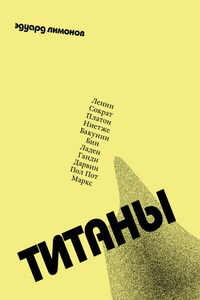Chapter One
His Excellency
“Then, plainly speaking, the whole thing remains a mystery?”
“Absolutely,” I responded. “All my efforts have unfortunately failed.”
“And you entertain no suspicion of anyone?”
“None whatever.”
“Not of that woman Yolande – or whatever her name is?”
“Certainly not of her,” I answered quickly. “She would assist us, if necessary.”
“Why are you so sure of that? She has only been in Paris a week.”
“Because I happen to know her.”
“You know her!” exclaimed His Excellency, unclasping his thin white hands and leaning across his big writing-table – a habit of his when suddenly interested. “Is she a personal friend of yours?”
I hesitated for a moment; then replied in the affirmative.
“Where did you know her?” he inquired quickly, fixing me with that sharp pair of black eyes that shone behind the zone of soft light shed by the green-shaded reading-lamp upon the table. He was sitting in the shadow, his thin, refined face ashen grey, his hair almost white. The one spot of colour was the fine star of Knight Grand Cross of the Bath glittering on the breast of his braided diplomatic uniform. Lord Barmouth, British Ambassador to the French Republic, had just returned from the President’s reception at the Elysée, and had summoned me for consultation.
“Well,” I responded, “I knew her in Rome, among other places.”
“H’m, I thought as much,” he remarked in a dry, dubious tone. “I don’t like her, Ingram – I don’t like her;” and I knew by the impatient snap of the Ambassador’s fingers that something had displeased him.
“You’ve seen her, then?”
“Yes,” he answered in an ambiguous tone, taking up a quill and making what appeared to be geometrical designs upon his blotting-pad. “She’s good-looking – uncommonly good-looking; but I mistrust her.”
“It is part of our creed to mistrust a pretty woman,” I remarked with a smile; for, as everyone knows, the fair sex plays a prominent part in the diplomacy of Europe. “But what cause have you for suspicion?”
He was silent for a moment; then he said:
“You were not at the ball at the Austrian Embassy the night before last, I believe?”
“No, I was not back from London in time,” I replied. “Was she there?”
“Yes. She was dancing with Hartmann, and they were speaking of you. I was chatting with Olsoufieff, and distinctly overheard your name mentioned.”
“With Hartmann!” I repeated. “That’s curious. He is scarcely a friend of ours.”
“I consider the circumstance suspicious, judged by the light of recent events,” he said. “Remember that the cause of our piece of ill-fortune still remains a mystery, and the stroke of diplomacy that we intended to effect as a coup against our enemies has, by the dastardly betrayal of our secret, placed us in a very unenviable position. This untoward incident has entirely checkmated us.”
“I fully realise our critical position,” I said seriously, “and I have done my utmost to discover the truth. Kaye has been active night and day.”
“Nevertheless, I fear that at Downing Street they will say hard things of us, Ingram;” and Her Majesty’s representative sighed heavily, resting his weary head upon his hand.
The Ambassador’s office was indeed a very thankless one, while my own position as second secretary of the Paris Embassy was a post not to be envied, even though it is popularly supposed to be one of the plums of the diplomatic service. With Paris full of spies endeavouring to discover our secrets and divine our instructions from Downing Street, and the cabinet noir ever at work upon our correspondence, it behoved us to be always on the alert, and to have resort to all manner of ingenious subterfuges in order to combat our persistent enemies.
The war-cloud hangs over Europe always. The mine is laid, and the slightest spark may fire it. The duty of the diplomatist is to intrigue so as to prevent that spark. It is the intrigue that is difficult, for counter-plots are met with everywhere. The power of England is feared; hence her isolation.
Those who live at home at ease think little of the small band of Englishmen in each of the capitals who, living ever upon the edge of a volcano, are straining every nerve to preserve the peace of Europe. How often the stability of empires trembles in the balance the British public little dreams. “The European Situation” is a stock heading in the London newspapers, but fortunately the journalists never know the secrets of our embassies, otherwise the world would very often be scared. Many a time in my own diplomatic career in Rome, in Brussels, and in Vienna, had I remained awake at night, fearing on the morrow a declaration of war; yet the chiefs under whom I have worked – those honest, upright, valiant servants of Queen and country – had skilfully evaded the threatened danger, and Europe remained in ignorance of how terribly near it had been to the clash of arms.
That night, as I sat with the chief, a trusted servant of Her Majesty, in his handsome private room in the Embassy, I knew that war was in the air. The responsibility resting upon him was of a sort to involve the prestige of the Queen’s Empire and the lives of thousands of her valiant sons. An ill-advised despatch, a hasty word, or an injudicious attitude would inevitably mean the disastrous explosion so long feared – the great European war that prophets have been predicting ever since the downfall of the French Empire.














